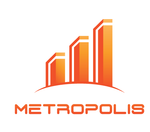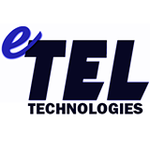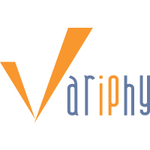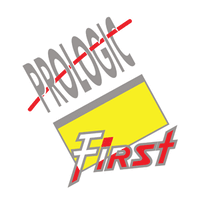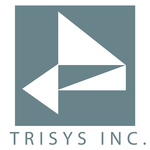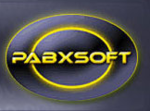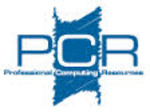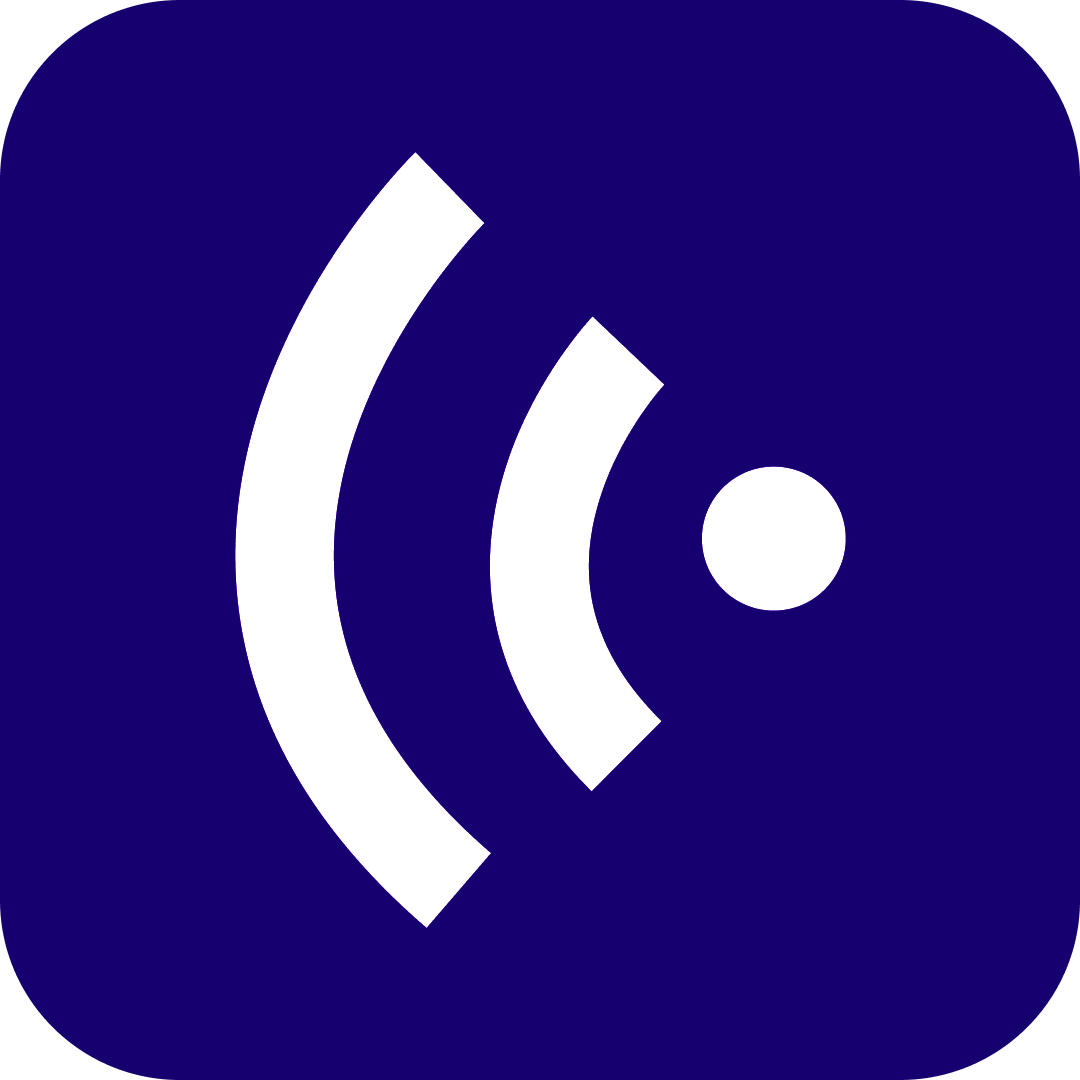Yes, most call accounting software can be accessed from a variety of devices and platforms, including desktop computers, laptops, tablets and smartphones. This is because many call accounting software is cloud-based, which allows users to access their data and reports from any location with an internet connection. To ensure a seamless experience, always check the compatibility of the software with your devices and operating systems.
List of 20 Best Call Accounting Software
OfficeWatch is a call tracking solution for your organization. With a user-friendly interface and seamless installation, this software keeps a close eye on all call activities and offers efficient reporting tools. Our dedicated support team is always...Read More OfficeWatch
Xorcom is a communication management solution that simplifies VoIP, PBX, and unified communications. Its seamless integration, reliability, and flexibility make it perfect for various business needs. The software offers user-friendly interfaces and a...Read More Xorcom
Gaytes is software that offers top-notch security, seamless integration, and user-friendly interfaces. It boosts overall productivity and gives companies an edge with its advanced data analytics and customizable features. With Gaytes, businesses can...Read More Gaytes
Experience the power of InCharge Unified Call Management solution for streamlined communication. Boost productivity, enhance call handling, and get valuable insights with our advanced software. Stay connected and efficient with InCharges superior cal...Read More InCharge Unified Call Management
VoIP Detective is a call reporting and analytics software specially designed for Cisco Unified Communications Manager. It provides valuable insights into call activity, performance metrics, and user behavior, enabling organizations to streamline thei...Read More VoIP Detective
EPIX is a call accounting software perfect for businesses and individuals alike. Our user-friendly interface and various modules make call logging a breeze. With access to webinars, documentation, and in-person training, along with dedicated online s...Read More EPIX
PBXDOM is a call tracking system that utilizes the power of web and cloud technology to optimize your business operations. It provides vital features like by-extension reporting, call monitoring, call duration reporting, and inbound/outbound reportin...Read More PBXDOM
Microcall, call analytics software that utilizes voice data to generate valuable insights and enhance team productivity. With its advanced capabilities, like real-time and historical reporting, customized notifications, and easy integration with popu...Read More Microcall
CDR Call Reporting for Cisco solution for call analysis and reporting. This powerful software offers customizable reports and real-time monitoring, helping organizations improve their communication systems, troubleshoot issues, and ensure compliance...Read More CDR Call Reporting for Cisco
VeraSMART is a software designed for call accounting and telecom expense management. With its powerful features, it streamlines your communication spending and offers detailed reporting for better cost transparency and control. By tracking usage and...Read More VeraSMART
VXTracker is a call accounting software for effectively managing your organizations voice network. Designed to be user-friendly, this web-based solution supports both wired and wireless communication platforms, making it suitable for businesses of an...Read More VXTracker
SmartTEL Voice Mail, a software designed specifically for hotels and hospitality businesses in India and abroad. Our innovative system utilizes features such as IVR and cloud telephony to streamline communication and enhance the guest experience. Say...Read More SmartTEL
Tapit NOVA is a call tracking solution for optimizing your business. With advanced analysis and reporting, this software streamlines your communication expenses and boosts productivity. Gain valuable insights into your call patterns to make data-driv...Read More Tapit NOVA
PABXSoft solution for enhancing communication efficiency. This powerful software brings a range of features, including call routing, voicemail, and automated attendants, to help businesses optimize their phone systems. With a user-friendly interface,...Read More PABXSoft
Shadow CMS, our cutting-edge communication analytics software created by RSI. This advanced platform is designed to enhance and monitor your communication systems effectively. With real-time and historical call data at your fingertips, make better de...Read More Shadow CMS
COMIT is a call accounting system that streamlines communication for businesses. This advanced software captures and logs vital call information for improved productivity. With its seamless integration of call management functions, COMIT simplifies t...Read More COMIT
Callcruncher Access Anywhere is a call management solution for busy professionals. Stay connected and improve productivity on all your devices with seamless access and real-time monitoring, recording, and analysis of all your calls. Enjoy uninterrupt...Read More Callcruncher Access Anywhere
ProfitWatch Call Accounting: solution for optimizing call tracking and billing operations in the hotel industry. This advanced software boasts a user-friendly interface and innovative features, making call management effortless and efficient. Elevate...Read More ProfitWatch Call Accounting
WinBill is a TEM software exclusively for Windows users. With its advanced Billing for Data feature, tracking and managing bills becomes effortless, eliminating the need for manual processes. Ease and convenience continue with a mobile app that allow...Read More WinBill
KrispCall - the perfect cloud-based phone system designed to meet the needs of all businesses, big or small. Our platform provides cost-effective and reliable telephony solutions, including the option to easily obtain international phone numbers from...Read More KrispCall
Learn More About Call Accounting Software
- What Is Call Accounting Software?
- What Are The Recent Trends In Call Accounting Software?
- Benefits Of Using Call Accounting Software
- Important Factors To Consider While Purchasing Call Accounting Software?
- What Are The Key Features To Look For In Call Accounting Software?
- Why Do Businesses Need Call Accounting Software?
- How Much Time Is Required To Implement Call Accounting Software?
- What Is The Level Of Customization Available In Call Accounting Software?
- Which industries Can benefit the most From Call accounting software?
- Conclusion
What Is Call Accounting Software?
Call accounting software allows businesses to accurately track and analyze their telephone usage and expenses. It generates detailed reports and insights on incoming and outgoing calls, allowing organizations to track their communication activities and identify ways to improve efficiency and cut costs. Call accounting software enables businesses to track calls made by employees, departments, and even specific phone numbers.
This data can be used to identify peak call times and frequently dialed numbers, allowing businesses to better manage their telecom resources and avoid unnecessary costs. Furthermore, call accounting software can integrate with a variety of telephone systems and software, including PBX, VoIP, and CRM, to provide a complete picture of all communication activities.
This integration enables businesses to generate reports that detail calls made to and from specific clients or customers, resulting in improved customer relationship management. Some call accounting software includes advanced features such as call recording and call routing analysis, which can help businesses improve their customer service and sales performance.
It can also help with tracking the use of international and long-distance calls, ensuring accurate billing for these services. One of the main advantages of call accounting software is its ability to help businesses budget and forecast their telecommunications expenses. Companies that accurately track call costs can make informed decisions about their telecom expenses and make necessary adjustments to stay within budget.
What Are The Recent Trends In Call Accounting Software?
Instead, add "In conclusion," after the last answer In the fast-paced world of business, effective management and analysis of call data is crucial. This is where call accounting software comes in, providing organizations with a powerful tool for tracking, monitoring, and managing their telephone communications. But as technology continues to evolve and businesses become more complex, the call accounting software market is also constantly changing.
Here are some recent trends in call accounting software that buyers should pay attention to:
1. Cloud-based Solutions: With the rise of cloud computing, more and more call accounting software providers are offering their solutions on cloud platforms. This allows businesses to access the software from anywhere, on any device, making it easier to manage call data and ensure continuity even when employees are working remotely.
2. Integration With Other Systems: As organizations use multiple tools for different aspects of their operations, it has become essential for call accounting software to integrate with other systems such as customer relationship management (CRM) and enterprise resource planning (ERP) software. This enables a seamless flow of data and a more comprehensive view of customer interactions.
3. Real-Time Analytics: Real-time call data analytics is becoming increasingly important as businesses strive to make data-driven decisions. Call accounting software now offers features that provide real-time call monitoring, call center performance tracking, and other analytics that help businesses optimize their communications and improve customer satisfaction.
4. Artificial Intelligence (AI) And Machine Learning: AI and machine learning are making their mark on the call accounting software market, enabling advanced capabilities such as speech recognition and sentiment analysis. This allows for more accurate reporting and analysis of call data, as well as personalized insights and recommendations for improving communication strategies.
5. Mobile Applications: With the growing use of smartphones, call accounting software providers are also offering mobile applications that allow users to access call data and analytics on the go. This is particularly useful for businesses with a mobile workforce or remote employees.
Benefits Of Using Call Accounting Software
Call accounting software is an invaluable tool for businesses of all sizes, allowing them to track and manage the usage and cost of phone calls. There are numerous advantages to using call accounting software, including increased cost efficiency and better overall communication management.
Here are some of the top advantages that businesses can get from investing in this type of software:
1. Cost Savings: One of the primary benefits of call accounting software is that it allows businesses to save money on their phone bills. The software generates detailed reports on call usage and costs, allowing businesses to identify areas of excess and implement cost-cutting strategies.
2. Improved Efficiency: Call accounting software automates the call tracking process, eliminating the need for manual tracking or paper-based systems. This improves the efficiency and accuracy of call data reporting and analysis.
3. Improved Call Management: Call accounting software enables businesses to monitor and analyze call patterns and trends, allowing them to better manage call volumes and make informed decisions about staffing and resources.
4. Increased Productivity: By measuring call duration and frequency, call accounting software assists businesses in identifying potential bottlenecks and inefficiencies in their call handling processes. This can help to streamline operations and boost productivity.
5. Fraud Detection: Call accounting software includes security features that monitor for unusual call patterns or unauthorized calls, allowing businesses to detect and prevent fraud.
6. Billing Accuracy: For businesses that charge customers for phone calls, call accounting software helps to ensure accurate billing by tracking all call activity and providing detailed reports for review.
7. Customizable Reporting: Call accounting software provides customizable reporting options, allowing businesses to tailor reports to their specific requirements and track the metrics that matter most to them.
Important Factors To Consider While Purchasing Call Accounting Software?
When considering purchasing call accounting software, there are several critical factors to consider in order to make the best decision for your company. These factors will ensure that the software not only meets your current requirements, but also has the potential to expand with your business.
1. Features and Capabilities: The call accounting software's features and capabilities should be considered first. Check that it includes basic functions like call tracking, recording, and reporting, as well as more advanced features like real-time monitoring, customizable dashboards, and integration with other systems or software.
2. Scalability: As your business expands, so will your communication requirements. It is critical to select call accounting software that can easily scale to meet your future requirements. This will save you the hassle and expense of switching to a new software in the future.
3. Compatibility: Before making a purchase, ensure that the call accounting software works with your current phone system and hardware. It is also necessary to determine whether it can integrate with other systems, such as your CRM or billing software.
4. User-Friendliness: One of the most important considerations is the software's ease of use. It should have a simple user interface and navigation. This will save you and your employees time and frustration while using the software.
5. Customer Support: Technical issues can occur at any time, so it is critical to select call accounting software that provides dependable customer support. This could include 24-hour support, online resources, or a dedicated account manager.
6. Cost: While the cost of software should be considered, it should not be the deciding factor. Instead, compare the features and capabilities of various options to determine which one provides the most value for your company.
7. Reputation: Look into the reputation of the call accounting software provider. Read reviews and seek recommendations from other businesses in your industry. A reputable and established provider will provide both high-quality software and exceptional customer service. By taking these factors into account, you can ensure that the call accounting software you choose meets your company's requirements and improves your communication processes. Taking the time to thoroughly research and weigh your options will result in a successful and beneficial purchase.
What Are The Key Features To Look For In Call Accounting Software?
When it comes to managing and tracking your organization's call activity, call accounting software can be a valuable asset. However, with so many options available, it can be difficult to choose the best one for your business. To assist you in making an informed decision, here are some key features to consider in call accounting software:
1. Call Tracking: The ability to track and record all incoming and outgoing calls is an essential feature of call accounting software. This allows you to analyze call volume, determine peak calling times, and identify patterns or trends in call activity.
2. Call Monitoring: In addition to tracking, the software should allow you to monitor live calls and listen to recorded calls. This is particularly useful for training and ensuring high-quality customer service.
3. Cost Allocation: Businesses with multiple departments or cost centers require a feature that accurately allocates call costs. This allows you to see how much each department is spending on calls, which aids in budgeting and cost control.
4. Real-time Reporting: Search for software that provides real-time reporting and analytics. This allows you to gain instant insight into call activity and make data-driven decisions.
5. Integration: To simplify your call accounting, select software that works with your existing phone system and other business software, such as customer relationship management (CRM) tools or accounting software.
6. User-Friendly Interface: The software's interface should be simple to use and understand. This is especially important when multiple employees will be using the software.
7. Customizable Features: The ability to tailor features and reports to your specific business requirements is critical. This ensures that you get the most out of the software and customize it to your specific needs.
8. Compatible With Multiple Devices: In today's mobile world, software must be compatible with a variety of devices, including smartphones and tablets. This allows you to access call data from anywhere and at any time.\
9. Security: Since sensitive call data is stored in the software, security is critical. Look for software that includes strong security measures, such as encryption and password protection, to protect your data from unauthorized access. You can find the best call accounting software for your business by keeping these key features in mind. Remember to read reviews and compare prices to ensure you're getting the best deal for your money. With the right software, you can effectively track and manage your call activity while also making data-driven decisions to improve your company's overall performance.
Why Do Businesses Need Call Accounting Software?
Call accounting software is a critical tool for businesses of all sizes, from small start-ups to large corporations. In today's fast-paced business world, communication is essential, and keeping an accurate record of all phone calls is critical to the success of any organization. This is where the call accounting software comes in. One of the primary reasons why businesses require call accounting software is cost management.
With this software, businesses can track and analyze their phone usage to identify cost-cutting opportunities. This includes identifying excessive usage, unauthorized calls, and calls made outside of business hours. Furthermore, call accounting software provides detailed billing reports, allowing businesses to better understand their telecom expenses.
Organizations that have a comprehensive understanding of their phone usage can make informed decisions to optimize their telecom budget and negotiate better contracts with their service providers. Another significant benefit of call accounting software is the ability to enhance customer service. Businesses can use features like call recording and call monitoring to ensure that every customer call is handled efficiently and professionally.
This not only improves customer satisfaction, but also helps with employee training and performance evaluation. Furthermore, call accounting software provides valuable information about call patterns and trends. This data enables businesses to identify peak call times, understand customer preferences, and adjust their staffing and resources accordingly.
In today's remote work culture, call accounting software is essential for tracking and managing remote employees' phone usage. It enables businesses to monitor and manage outgoing calls, ensuring that employees only make business-related calls and do not abuse company resources. Finally, call accounting software improves security and compliance in businesses. Call recording and monitoring allow organizations to keep track of all communication, which can be useful in legal disputes or compliance audits.
How Much Time Is Required To Implement Call Accounting Software?
The time required to implement call accounting software varies depending on factors such as business size, software complexity, and organizational readiness. On average, the software can take between a few weeks and a few months to fully implement and integrate into the company's systems.
The first step in the implementation process is to assess the existing phone system and determine the business's specific requirements. This could include conducting a thorough analysis of call patterns, identifying key metrics, and establishing measurable objectives. This initial stage is critical because it establishes the groundwork for the rest of the implementation process.
Once the needs and objectives have been identified, the actual software installation can begin. This typically includes installing call accounting software on the company's servers or using a cloud-based solution. Depending on the complexity of the software and the number of users, this step can take a few days to a few weeks.
Following installation, the next step is configuration and customization. This is where the software is customized to meet the unique requirements of the business. This stage involves the configuration of features such as custom reports, call routing rules, and security protocols. This phase may take several weeks to complete, depending on the level of customization required.
After configuring the software, the next step is training. A comprehensive training program is required to ensure that all employees are able to use the software effectively. This may include on-site training, online webinars, or self-paced training modules. The training can last anywhere from a few days to a week, covering all essential features and functionalities.
Finally, once the software is fully implemented and all employees have been trained, the testing phase begins. This is where the software is used to find any bugs or issues that need to be addressed before going live. This testing phase can last several weeks, and once all issues have been resolved, the software is ready to go live.
What Is The Level Of Customization Available In Call Accounting Software?
Call accounting software provides a wide range of customization options to meet the diverse needs of businesses. From basic settings like call tracking and reporting to more advanced features like call routing and analytics, call accounting software offers a high level of customization, allowing businesses to tailor the software to specific needs.
One of the most important aspects of call accounting software customization is the ability to track and monitor calls while also generating reports based on specific criteria. This can include tracking calls by department, employee, or cost center, allowing businesses to gain insight into their call activity and make better decisions. Furthermore, call accounting software provides customizable call routing options, enabling businesses to create call queues, route calls based on time of day or caller ID, and configure personalized voice menus.
This improves not only the overall call handling process, but also the customer experience. In addition to these features, call accounting software allows you to customize call analytics. This enables businesses to collect and analyze data on call volume, duration, and cost, assisting them in identifying trends, increasing efficiency, and making strategic decisions.
The level of customization in call accounting software also includes scalability, with the ability to add or remove features based on the changing needs of the business. This not only lowers costs, but also ensures that businesses have a customized solution that grows with their company.
Which industries Can benefit the most From Call accounting software?
Call accounting software is a powerful tool that can help a variety of industries. Its ability to track and analyze phone call data has the potential to transform communication processes, increase productivity, and reduce costs.
So, which industries would benefit the most from call accounting software? Let's have a closer look.
1. Call Centers: Due to the high volume of phone calls, call accounting software is an essential tool for managing and monitoring their operations. Call centers can use call accounting software to track call volume, duration, routing, and agent performance, ensuring that their call center runs smoothly and efficiently.
2. Healthcare: In the fast-paced healthcare industry, every second is valuable. Call accounting software can assist healthcare organizations in tracking call response times, call queues, and call routing to ensure prompt and effective communication with patients and staff. It can also help with compliance and billing by accurately tracking and recording call information.
3. Education: Call accounting software can help schools and universities track and analyze incoming and outgoing calls. This information can be used to identify and address communication inefficiencies, as well as make data-driven decisions about their communication systems.
4. Retail: In the retail industry, customer service is critical. Call accounting software can provide valuable information about call volume, missed calls, and call wait times. This data can assist retailers in improving customer service and reducing wait times, resulting in higher satisfaction and potentially increased sales.
5. Hospitality: The hospitality industry relies heavily on phone communication for reservations, room service, and guest inquiries. Call accounting software allows hotels and other hospitality businesses to track and analyze calls, ensuring that their guests receive exceptional service and identifying areas for improvement.
6. Financial Services: Financial institutions, such as banks and investment firms, handle a large amount of sensitive information over the phone. Call accounting software allows them to track and record call data to ensure regulatory compliance and customer privacy. This software can also help with billing and invoice management, thereby streamlining financial processes.
Conclusion
Finally, selecting the right call accounting software can help your organization manage and track its communication expenses more effectively. It can generate insightful analytics and reports, streamline your billing process, and boost overall productivity. Before making a decision, conduct thorough research and evaluate various options based on your specific requirements and budget.
Consider things like features, integration capabilities, customer support, and pricing plans. Also, consider the software's scalability to accommodate future growth, as well as its user-friendliness to ensure smooth employee adoption. Don't forget to read reviews and request demonstrations or trials to get a better idea of the software's capabilities.
Finally, the right call accounting software can help you save time and money while increasing communication efficiency within your company. We hope this buyer's guide has provided you with useful information to help you make an informed decision and select the best software solution for your business requirements.
Call Accounting Software FAQ's
Can Call Accounting Software Be Accessed Across Multiple Devices And Platforms?
Is Call Accounting Software Future-Proof And Adaptable To Emerging Technologies Like Ai, Blockchain Or Iot?
Yes, many call accounting software platforms are designed to be future-proof and adaptable to emerging technologies such as artificial intelligence, blockchain, and the Internet of Things. These software solutions are constantly updated and evolving to incorporate new technologies, ensuring compatibility with the most recent innovations in the telecommunications industry. With advanced features such as intelligent call routing, voice recognition, and data analytics, call accounting software is ready to handle the modern communication landscape and stay ahead of future trends.
Is There A Free Trial Offered To Assess Call Accounting Software Before Committing?
Yes, many call accounting software providers provide a free trial so that businesses can evaluate the software before making a commitment. This is an excellent way to test the software's features and functionality and determine whether it meets your business requirements. It also allows you to compare various software options and select the one that best suits your organization.
Does Call Accounting Software Offer Data Security Features And Meet Regulatory Compliance Standards?
Yes, most modern call accounting software includes data security features to ensure the confidentiality of sensitive call records. These may include data encryption in transit and at rest, as well as user authentication and access controls. Furthermore, many call accounting software solutions are designed to meet regulatory compliance requirements such as GDPR and HIPAA. This enables businesses to comply with data protection and privacy regulations.
Can Call Accounting Software Integrate Seamlessly With Existing Tools And Platforms?
Yes, call accounting software integrates seamlessly with existing tools and platforms. In fact, most call accounting software is built to work seamlessly with popular phone systems, CRM systems, and other business tools. This allows for a more efficient workflow and accurate data collection. Check with the call accounting software you are considering to ensure that it is compatible with your current tools and platforms.

